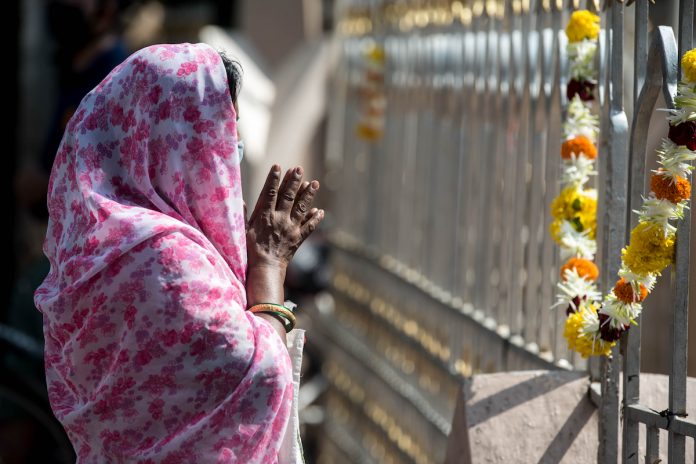Police officials in India’s south-west Karnataka state have reportedly banned a community of Christians gathering for worship services.
Rights group International Christian Concern (ICC) said they have learnt that 15 Christian families in Bannimardatti village were summoned to meet with police on Jan. 4 where a deputy superintendent of police asked them to show evidence that they were Christian. The police officer then accused them of collecting government benefits as both Christians and Hindus.
ICC said that the officials then claimed none of the approximately 50 Christians in the community were Christian by birth and must have been coercively or fraudulently converted to Christianity. The Christians have subsequently been banned from gathering for worship indefinitely.
The rights group said that the police order is in direct conflict of the religious freedom rights held by India’s citizens under Article 25 of the constitution. According to Article 25, Indian citizens are given the freedom to profess, practice, and propagate the religion of their choice.
“There is no freedom whatsoever to gather for worship and practice the faith of our choice,” a local pastor told ICC. “The divide between communities is growing and the anti-conversion law that the state government of Karnataka is trying to enact will worsen the situation for religious minorities.”
A local Christian said the ban was the result of Hindu hardliners using the state police to clamp down on Christian activities.
“They have tried everything including social boycotts and physical beatings,” the Christian said. “However, local Christians remained faithful in the midst of continued harassment.”
Anti-conversion laws
ICC said that Karnataka’s state government, led by the Hindu-nationalist Bharatiya Janata Party (BJP) politicians, recently, pledged to enact a law to regulate religious conversions and criminalize fraudulent religious conversions. Three other BJP-led states, including Madhya Pradesh, Assam, and Haryana, have made similar pledges after Uttar Pradesh, another BJP-led state, promulgated an anti-conversion law in November 2020.
The BJP-led government of Madhya Pradesh approved an ordinance entitled The Madhya Pradesh Freedom of Religion Ordinance 2020 on Jan. 9. The ordinance replaces the Madhya Pradesh’s Religious Freedom Act of 1968 and is considered by lawmakers to be the most stringent anti-conversion law in India.
According to the ordinance, individuals seeking to change their religion will need to apply to the district administration 60 days in advance. Religious leaders facilitating religious conversions would also need to inform the district administration 60 days in advance. If the previsions of the ordinance are not followed individuals could face a sentence of three to five years in jail and a financial penalty of 50,000 rupees.
The ordinance also criminalizes forceful religious conversions with a jail term of one to five years’ imprisonment and a fine of 25,000 rupees (US$ 340). Section 3 of the ordinance increases these punishments to two to 10 years’ imprisonment and a fine of 50,000 rupees for individuals forcefully converting minors, women, or individuals belonging to a Scheduled Caste or Scheduled Tribe.
ICC claim that hard-line Hindu nationalists have used the specter of mass religious conversions to Christianity as justification to pass laws limiting religious freedom. According to hardliners, Indian Christians are accused of converting poor Hindus to Christianity in mass by fraudulent means, a claim rebutted by Christian groups such as ICC. To date, no individual has been convicted of forced conversion in India. Some of the anti-conversion laws have been on the books since 1967.
The US Commission for International Religious Freedom, an independent body dedicated to protecting freedom of religion, has recently recommended India to be listed as a “country of particular concern.”
United Nations officials have recently raised concerns over what they describe as “the growing trend of violence towards religious minorities” in the country.
Christians make up 2.3 percent of India’s population of more than 1.3 billion of whom some 80 percent are Hindu.









